Walt Disney’s 1946 film, “Song of the South,” remains a cinematic enigma – a movie celebrated for its technical innovation yet infamous for its racially charged depictions of the American South. Despite its Oscar-winning song and the inspiration it provided for the beloved Splash Mountain theme park ride, “Song of the South” is conspicuously absent from Disney’s streaming platform, Disney+. This absence isn’t an oversight; it’s a deliberate decision, reflecting the ongoing controversy surrounding the film’s portrayal of the Reconstruction-era South and its legacy in contemporary society. Even disclaimers, now common for older Disney titles with outdated cultural depictions, are insufficient to justify its inclusion in the modern Disney library. As Disney CEO Bob Iger stated in 2020, the film is simply “not appropriate in today’s world.” This stance predates and was further solidified by the global conversations sparked by the Black Lives Matter movement, which amplified scrutiny on Hollywood’s historical representations of race.
Set in the post-Civil War South, “Song of the South” is primarily known for its animated segments featuring Uncle Remus and the Br’er Rabbit tales, but its live-action narrative depicts a romanticized vision of plantation life after slavery. This duality – the charming animation juxtaposed with the problematic live-action context – is at the heart of the film’s controversy. The film’s most enduring contribution to popular culture is arguably Splash Mountain, the log flume ride that once thrilled guests at Disney theme parks worldwide. However, even this beloved attraction has become a casualty of the film’s contentious legacy. Splash Mountain at Walt Disney World in Florida closed in January 2023, followed by Disneyland in California in May 2023. Both are being reimagined as Tiana’s Bayou Adventure, based on the more recent and inclusive Disney film, “The Princess and the Frog.” This transformation signals Disney’s attempt to distance itself from the problematic imagery of “Song of the South” while retaining the thrill ride format.
 The exterior of the Splash Mountain attraction is seen at Walt Disney World Resort
The exterior of the Splash Mountain attraction is seen at Walt Disney World Resort
The shift away from “Song of the South” extends beyond theme park rides. In 2023, Disney also removed “Zip-a-Dee-Doo-Dah,” the film’s Academy Award-winning song, from park parades and festivities. While many recognize the tune from childhood, its origins are deeply intertwined with the film’s problematic context. The song, performed by Uncle Remus, is emblematic of the romanticized and arguably sanitized portrayal of the post-Civil War South that critics find so objectionable. Uncle Remus himself, voiced by James Baskett in the film, is a character drawn from African American folklore, popularized in print by Joel Chandler Harris, a white author. Harris’s interpretations of African American dialect and folktales have faced modern scrutiny, and while Uncle Remus influenced literary figures like Beatrix Potter, the character and his stories are largely absent from contemporary American literary discourse.
James Baskett’s performance as Uncle Remus earned him an Honorary Oscar in 1948, a posthumous recognition as he passed away the same year due to health issues exacerbated during the film’s production. Despite the accolade, the film’s underlying issues continued to simmer beneath the surface of popular consciousness.
Film historian Karina Longworth, in her podcast “You Must Remember This,” delved into the complex and troubling legacy of “Song of the South.” Her analysis highlighted the minstrelsy elements present in the film and its historically inaccurate and insensitive depiction of post-Civil War plantation workers in Georgia. Longworth’s work contributes to a broader critical re-evaluation of the film, urging audiences to confront its problematic aspects rather than simply dismissing them.
Despite its controversial nature, “Song of the South” was a commercially successful property for Disney for many years. Even after initial temporary closures of Splash Mountain sparked petitions accusing Disney of yielding to “culture wars,” the company has remained steadfast in its decision to move away from the film’s imagery. These petitions, largely ignored by Disney, underscore the deep divisions in public opinion surrounding the film and its legacy. Disney’s commitment to rebranding its theme park attractions and keeping the film off streaming platforms demonstrates a clear prioritization of contemporary values and inclusivity over historical preservation of potentially offensive content.
Splash Mountain Reimagined: From “Songs of the South” to “The Princess and the Frog”
Disney World’s transformation of Splash Mountain into Tiana’s Bayou Adventure is a tangible example of this shift. The new ride is an homage to “The Princess and the Frog,” a film celebrated for featuring Disney’s first Black female princess. Announced in 2021, the reimagining incorporates characters Tiana, Naveen, and Louis into a Mardi Gras celebration within the ride’s narrative. Original music inspired by “The Princess and the Frog” will replace the “Songs Of The South” that previously permeated Splash Mountain, further distancing the new attraction from its controversial predecessor.
 Tianas Bayou Adventure
Tianas Bayou Adventure
Tiana’s Bayou Adventure opened at Disney World on June 28, 2024, and is slated to open at Disneyland later in the year. While retaining the log flume format of Splash Mountain, the new ride centers around the world and characters of “The Princess and the Frog,” directed by John Musker and Ron Clements. Early reviews of Tiana’s Bayou Adventure have praised its technological advancements but noted some narrative shortcomings. Podcast host Jack Kendall of DSNY commented on CNN that the ride, despite its thrilling 50-foot drop, lacks a clear antagonist or narrative drive, describing it as “a lovely collection of scenes… beautifully put together, but there’s not really much of an impetus for why we’re going on this journey now.” This critique suggests that while Disney has successfully updated the ride’s thematic content, some aspects of the storytelling may still need refinement.
“Zip-a-Dee-Doo-Dah” Silenced: Erasing “Songs of the South” from Disney Parks
The removal of “Zip-a-Dee-Doo-Dah” from Disney parks represents another significant step in distancing the company from “Songs of the South.” Once ubiquitous in parades and park festivities, the Oscar-winning tune is now absent from major Disney parades, including the Magic Happens parade in Disneyland and the Festival of Fantasy parade at Disney World. This erasure of the film’s most recognizable song underscores Disney’s commitment to removing controversial elements from its public-facing properties.
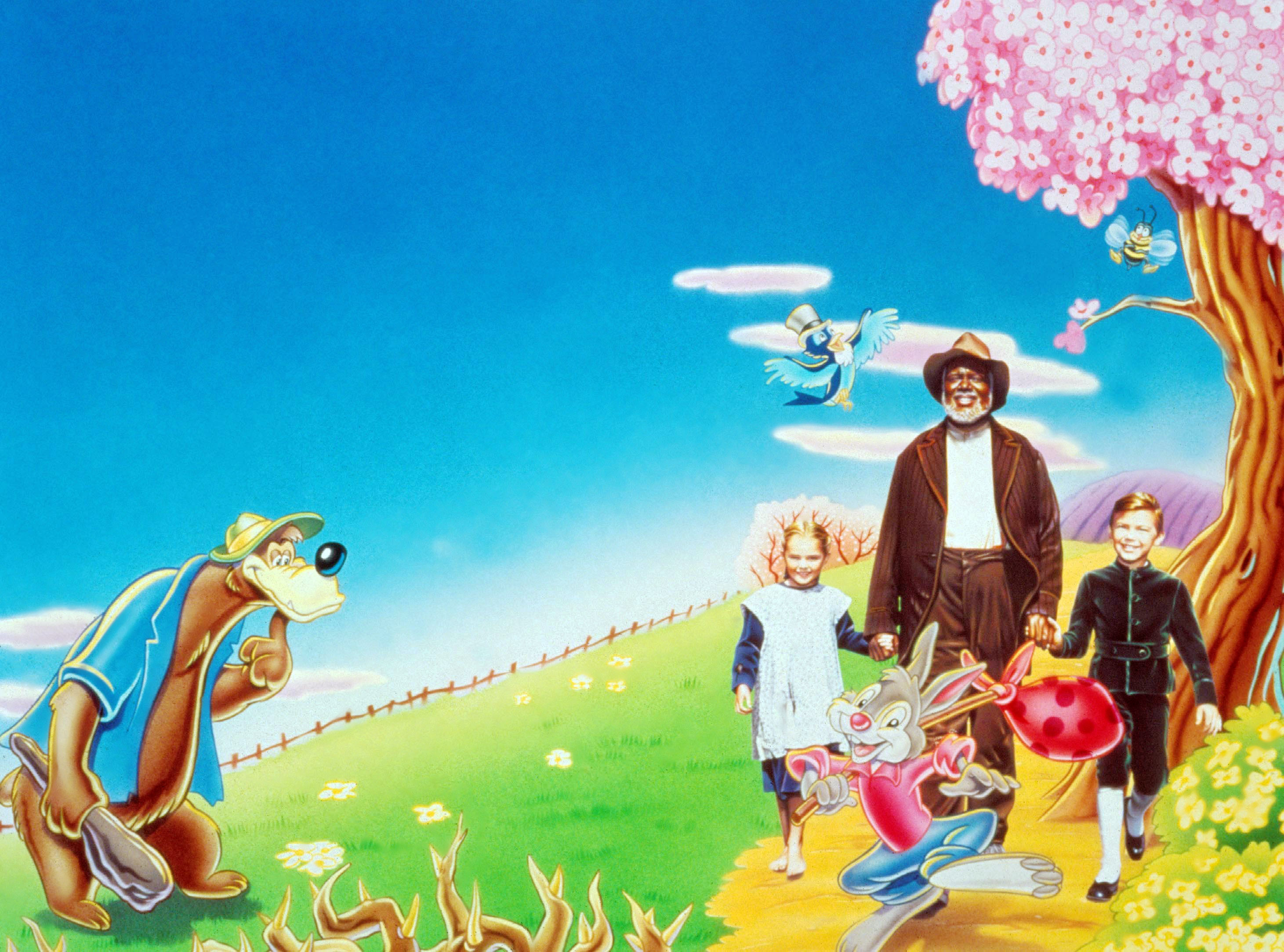 SONG OF THE SOUTH, Br
SONG OF THE SOUTH, Br
While the Magic Happens parade now features music from “Peter Pan,” the absence of “Zip-a-Dee-Doo-Dah” is palpable for long-time Disney parkgoers. The song, once a symbol of Disney’s cheerful brand, has become a reminder of the company’s complicated past and its ongoing efforts to reconcile with its legacy in a more socially conscious era.
Disney+ Ban: “Songs of the South” Remains Unstreamable
“Song of the South”‘s absence from Disney+ is perhaps the most definitive indication of its banished status within the Disney empire. Unlike other Disney films that include content advisories for outdated cultural depictions, “Song of the South” is deemed irredeemable, even with a disclaimer. CEO Bob Iger reiterated in 2020 that the film is “not appropriate in today’s world” and will not be re-released on the streaming platform.
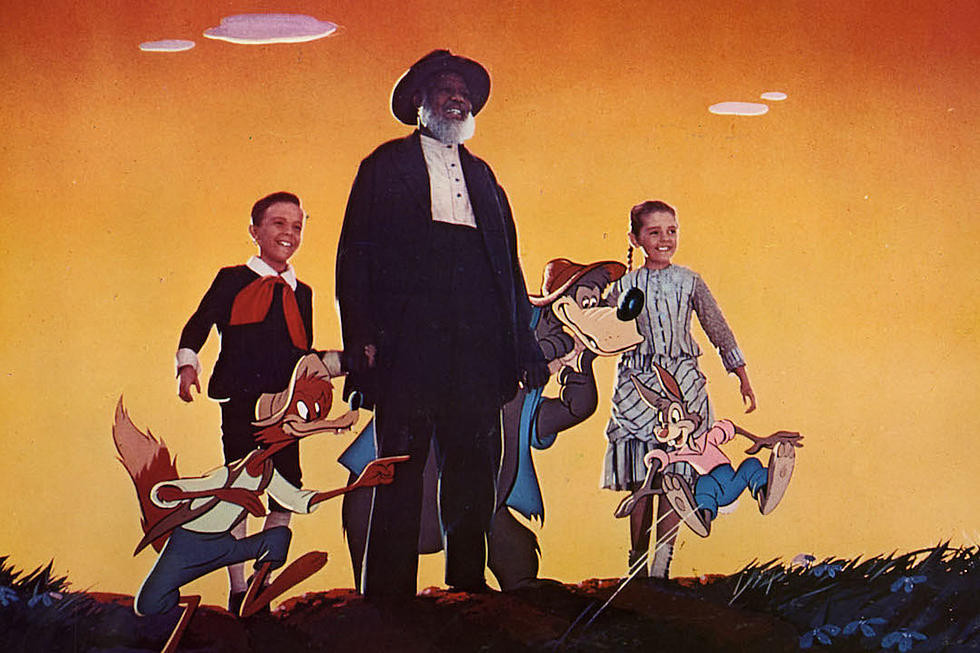 Song of the South
Song of the South
This decision reflects a clear stance from Disney: “Song of the South” is not just outdated; it is fundamentally incompatible with the company’s contemporary brand values. While some have argued for its inclusion on Disney+ as a historical artifact, to be viewed with critical context, Disney has prioritized avoiding potential offense and negative publicity.
Historical Context vs. Modern Sensibilities: The Debate Over “Songs of the South”
The debate surrounding “Song of the South” highlights the tension between preserving historical artifacts and adhering to modern sensibilities. As the late film historian Cari Beauchamp argued, excluding the film entirely is akin to “pretending it doesn’t exist.” She advocated for providing context, asking, “When was it made? What world was it reflecting?” Beauchamp and others suggest that confronting the film’s problematic elements directly, within a framework of historical analysis, could be more valuable than outright censorship.
 Song of the South
Song of the South
However, Disney’s decision reflects a different calculus. The company appears to have concluded that the potential harm caused by making the film accessible, even with context, outweighs any educational or historical value it might possess. In a globalized and increasingly sensitive media landscape, Disney is prioritizing brand protection and inclusivity, even if it means burying a controversial piece of its own history.
James Baskett’s Oscar and “Zip-A-Dee-Doo-Dah”‘s Enduring Popularity
Despite the controversy, “Song of the South” achieved notable accolades. James Baskett’s Honorary Oscar for his portrayal of Uncle Remus, a character imparting life lessons to Bobby Driscoll’s Johnny, was a groundbreaking moment, though also complicated by the racial stereotypes inherent in the “Magical Negro” trope that Uncle Remus embodies. Baskett’s win in 1948, shortly before his death, remains a significant, if bittersweet, chapter in Hollywood history.
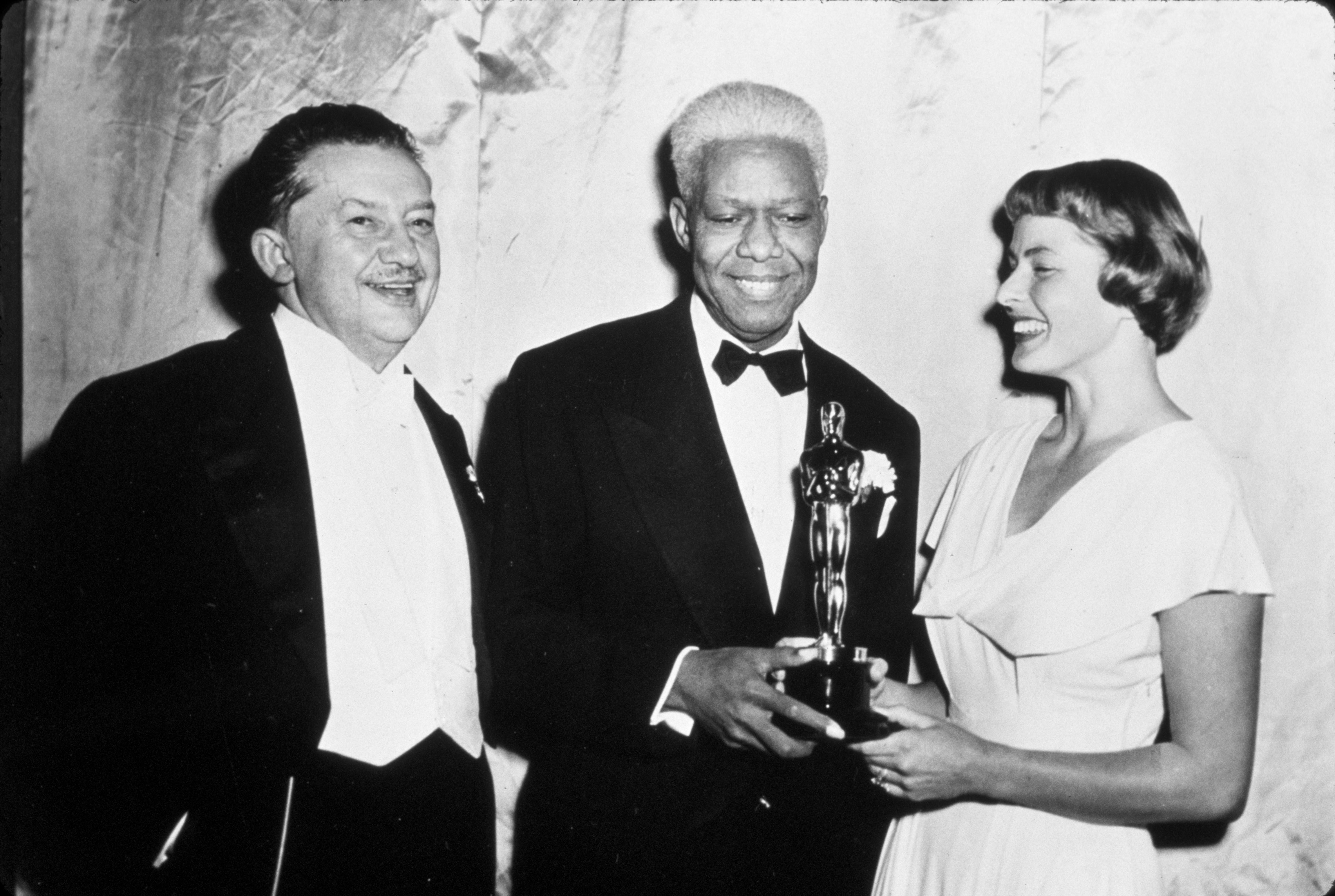 Editorial use only Mandatory Credit: Photo by Snap/Shutterstock (390862az) FILM STILLS OF
Editorial use only Mandatory Credit: Photo by Snap/Shutterstock (390862az) FILM STILLS OF
The film also gifted the world “Zip-A-Dee-Doo-Dah,” an infectiously cheerful song that earned an Academy Award for Best Original Song. Composed by Allie Wrubel with lyrics by Ray Gilbert, the song’s enduring popularity is undeniable, even as its problematic origins are increasingly acknowledged. The juxtaposition of the song’s upbeat melody and the film’s troubling racial context encapsulates the complex and contradictory nature of “Songs of the South”‘s legacy.
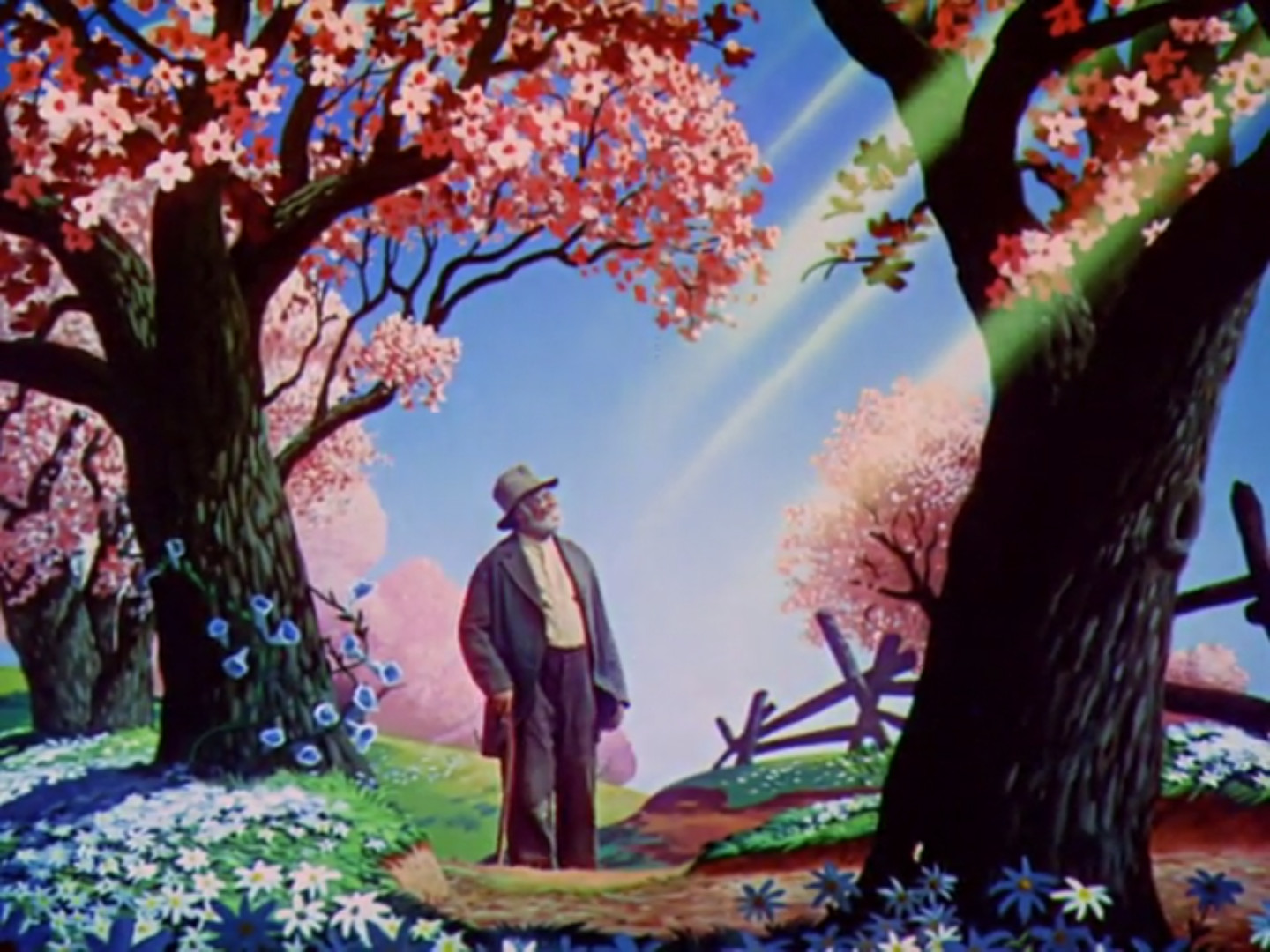 Uncle_Remus_looking_at_the_sun
Uncle_Remus_looking_at_the_sun
NAACP’s Early Criticism and Lingering Concerns
Even in 1946, the NAACP voiced strong concerns about “Song of the South.” While acknowledging the film’s technical achievements, the organization criticized its “dangerously glorified picture of slavery” and its portrayal of an “idyllic master-slave relationship,” which they deemed a “distortion of the facts.” This early criticism foreshadowed the ongoing controversy that would plague the film for decades.
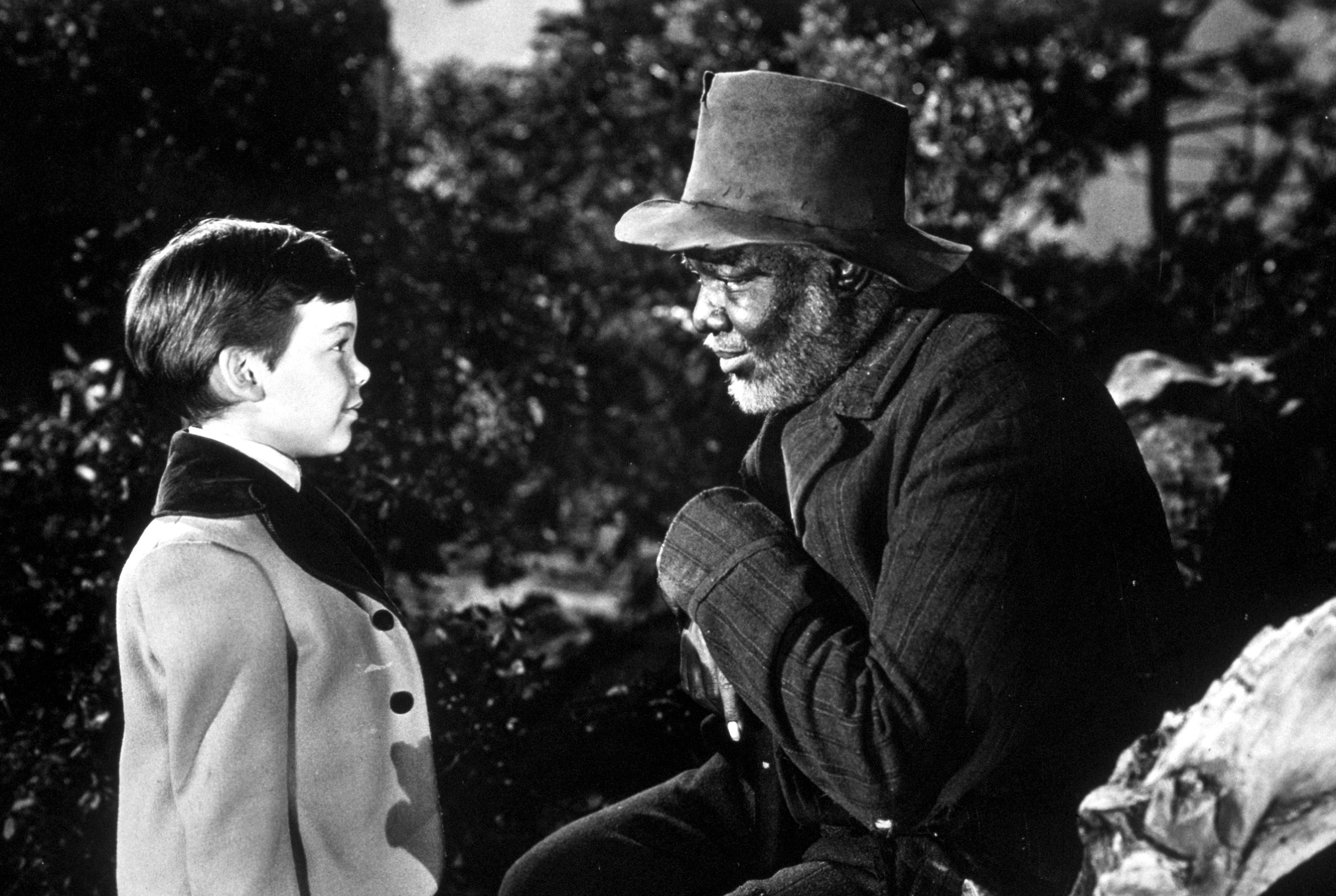 Editorial use only Mandatory Credit: Photo by Snap/Shutterstock (390933bc) FILM STILLS OF
Editorial use only Mandatory Credit: Photo by Snap/Shutterstock (390933bc) FILM STILLS OF
The NAACP’s statement highlights the core issue: regardless of technical merits or box office success, the film’s romanticized depiction of the antebellum South and its aftermath is fundamentally flawed and perpetuates harmful stereotypes. This critique remains relevant today, informing Disney’s decision to keep the film out of circulation.
Splash Mountain’s “Songs of the South” Origins
Splash Mountain, despite its re-theming, remains inextricably linked to “Songs of the South.” Opened in the 1990s, the ride directly incorporated characters, songs, and settings from the film’s animated segments. Br’er Rabbit, Br’er Fox, and Br’er Bear, central figures in the Uncle Remus stories, populated the ride’s narrative, bringing the “songs of the south” and characters to life for generations of parkgoers.
 Song Of The South The character Brer Rabbit, from the movie, Song of the South, is depicted at the entrance to the Briar Patch gift shop near the Splash Mountain ride in the Magic Kingdom at Walt Disney World in Lake Buena Vista, Fla., . Walt Disney Co.
Song Of The South The character Brer Rabbit, from the movie, Song of the South, is depicted at the entrance to the Briar Patch gift shop near the Splash Mountain ride in the Magic Kingdom at Walt Disney World in Lake Buena Vista, Fla., . Walt Disney Co.
Even as Tiana’s Bayou Adventure replaces Splash Mountain, the legacy of “Songs of the South” will linger in the memories of those who experienced the original ride. The re-theming represents not just a change in theme but a conscious effort to erase the problematic associations with the earlier attraction.
No Home Video Release: Disney’s Vault Remains Locked
“Song of the South” has never been officially released on home video in the United States, further cementing its status as a forbidden film within the Disney canon. CEO Bob Iger stated in 2019 that releasing the film, even for financial gain, would not be “in the best interest of our shareholders.” While VHS and LaserDisc releases exist overseas, the film remains inaccessible to most American audiences through legitimate channels.
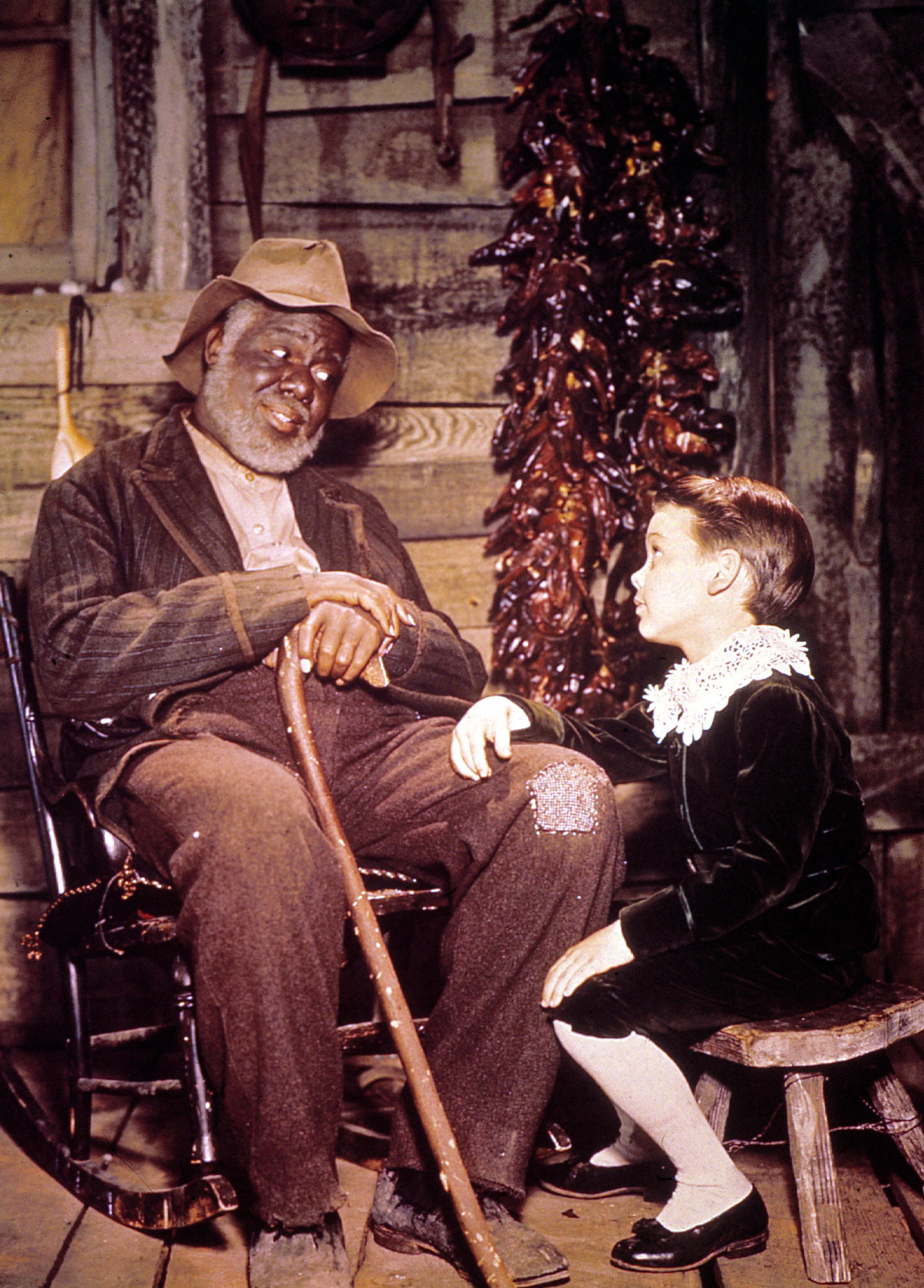 Editorial use only. No book cover usage. Mandatory Credit: Photo by Moviestore/Shutterstock (1617035a) Song Of The South, James Baskett, Bobby Driscoll Film and Television
Editorial use only. No book cover usage. Mandatory Credit: Photo by Moviestore/Shutterstock (1617035a) Song Of The South, James Baskett, Bobby Driscoll Film and Television
This deliberate withholding of the film underscores Disney’s firm stance against its wider distribution. The “Disney Vault,” once a marketing strategy to create demand for re-released classics, has become a literal vault for “Songs of the South,” keeping it locked away from public consumption.
Divided Black Press: Varying Perspectives on “Songs of the South”
Interestingly, not all voices within the Black press condemned “Song of the South” upon its release. While Richard Dier of The Afro-American criticized the film as “vicious propaganda for white supremacy,” Herman Hill of The Pittsburgh Courier offered a contrasting view, suggesting it could “prove of inestimable goodwill in the furthering of interracial relations.” Hill dismissed criticisms as “unadulterated hogwash,” highlighting the diverse opinions within the Black community at the time.
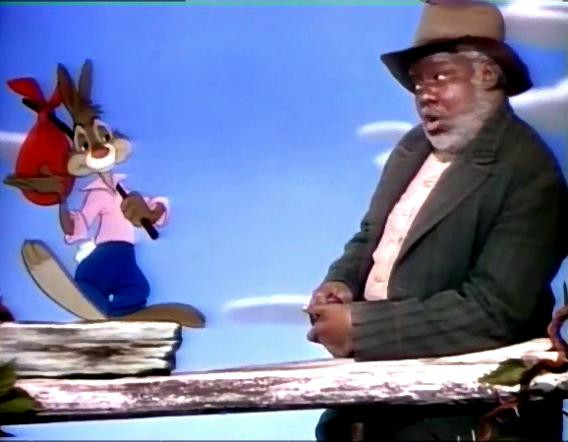 Song of the South
Song of the South
This division within the Black press illustrates the complexities of interpreting the film’s message and its potential impact. While some immediately recognized its problematic undertones, others saw potential for positive interracial messaging, or perhaps prioritized other aspects of the film over its racial depictions.
Disney’s Early Unease: Recognizing the “Dangerous” Territory
Even during production, Disney recognized the sensitive nature of “Song of the South.” Studio publicist Vern Caldwell warned producer Perce Pearce about the “dangerous” “negro situation,” anticipating potential controversy from both “negro haters and the negro lovers.” This internal acknowledgment of the film’s precarious position suggests that Disney was aware of the potential for backlash from the outset.
 Song of the South
Song of the South
This early unease within Disney foreshadows the decades of controversy that would follow. Despite these internal warnings, the studio proceeded with the film, perhaps underestimating the long-term impact of its racial representations.
Cast Defenses: Hattie McDaniel and James Baskett’s Support
Adding another layer of complexity, some members of the film’s cast, including Hattie McDaniel and James Baskett, publicly defended “Song of the South.” McDaniel, the first Black Academy Award winner for “Gone With the Wind,” stated in 1947 that she would not have participated “if I had for one moment considered any part of the picture degrading or harmful to my people.” Baskett echoed this sentiment, arguing that critics were “doing my race more harm in seeking to create dissension” than the film itself.
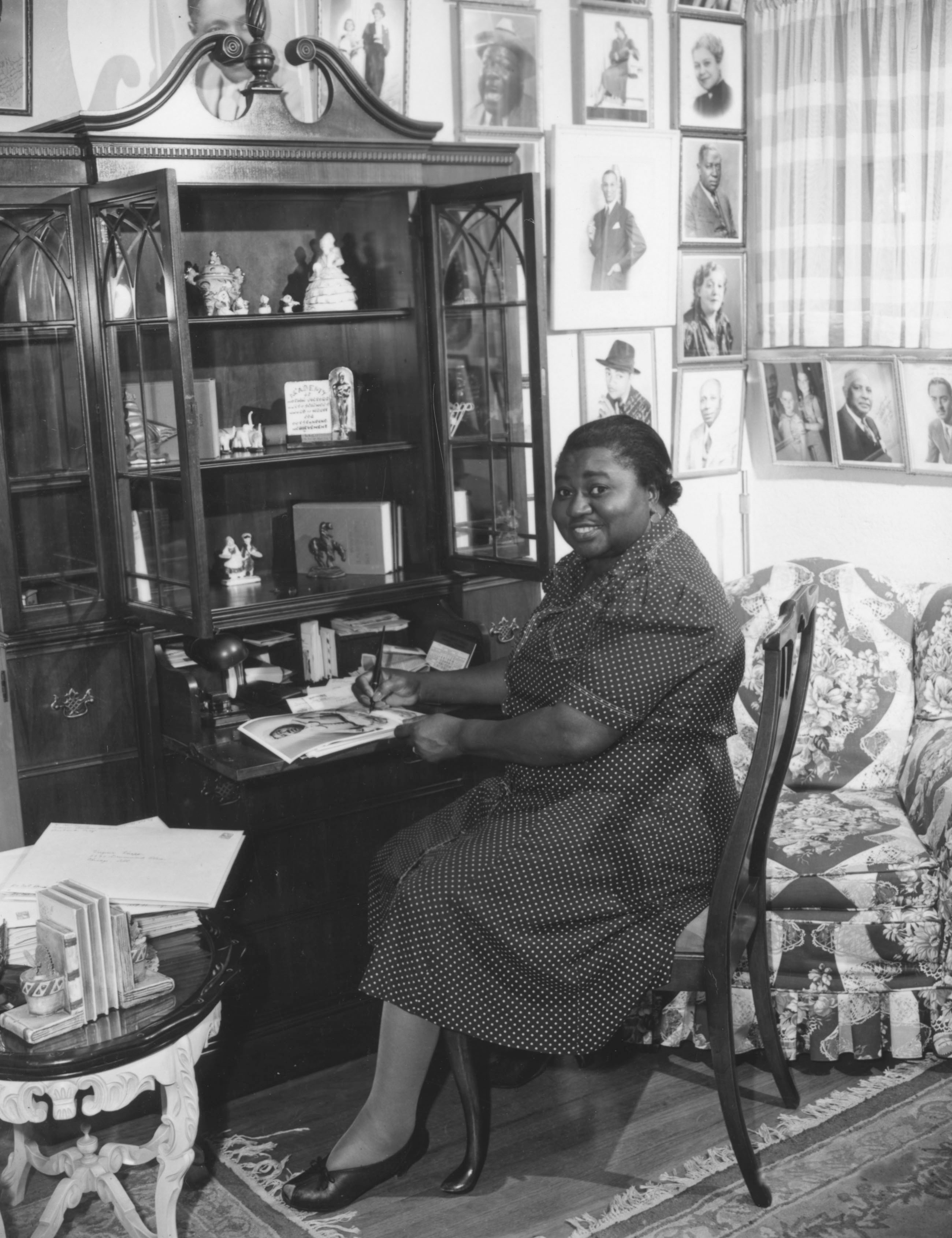 Editorial use only. No book cover usage. Mandatory Credit: Photo by Kobal/Shutterstock (5870063a) Hattie McDaniel Hattie McDaniel Candid
Editorial use only. No book cover usage. Mandatory Credit: Photo by Kobal/Shutterstock (5870063a) Hattie McDaniel Hattie McDaniel Candid
These defenses, while perhaps reflecting the actors’ personal experiences and perspectives, do not negate the broader criticisms of the film’s racial depictions. Their viewpoints, however, add nuance to the historical reception of “Song of the South” and highlight the range of opinions surrounding it, even among Black artists involved in the project.
Box Office Success Decades Later: Nostalgia and Enduring Appeal
Despite the early controversy and criticisms, “Song of the South” remained a box office draw for Disney. When re-released in theaters in 1986, capitalizing on nostalgia for classic Disney films, it grossed over $17 million. This success, forty years after its initial release, demonstrates the film’s enduring appeal to audiences, even as awareness of its problematic content grew.
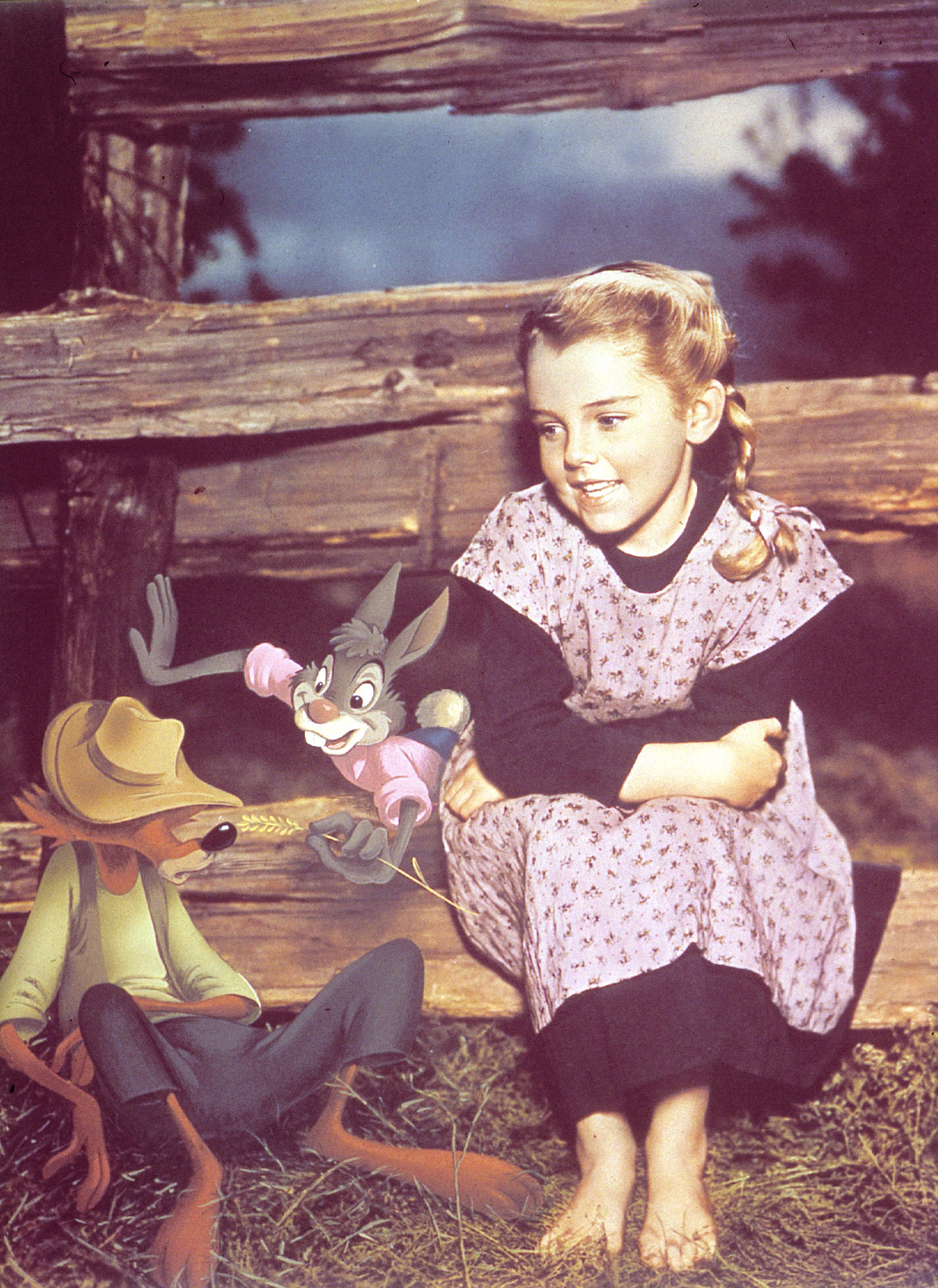 Editorial use only. No book cover usage. Mandatory Credit: Photo by Moviestore/Shutterstock (1613525a) Song Of The South, Luana Patten Film and Television
Editorial use only. No book cover usage. Mandatory Credit: Photo by Moviestore/Shutterstock (1613525a) Song Of The South, Luana Patten Film and Television
This financial success, even in the face of growing criticism, underscores the complexities of the film’s legacy. Nostalgia, combined with the film’s technical achievements and memorable “songs of the south,” contributed to its continued popularity, even as its racial politics became increasingly unacceptable in mainstream culture.
In conclusion, “Song of the South” is more than just a controversial film; it is a cultural flashpoint that reflects evolving societal attitudes towards race, representation, and historical narratives. Disney’s decision to bury “Songs of the South,” while transforming its theme park legacy, is a clear indication of Hollywood’s ongoing reckoning with its past and its commitment to creating a more inclusive future. The film’s absence from Disney+ and the re-theming of Splash Mountain are not simply acts of censorship but rather strategic moves to align the Disney brand with contemporary values, even if it means erasing a problematic, yet historically significant, chapter in the company’s history.

